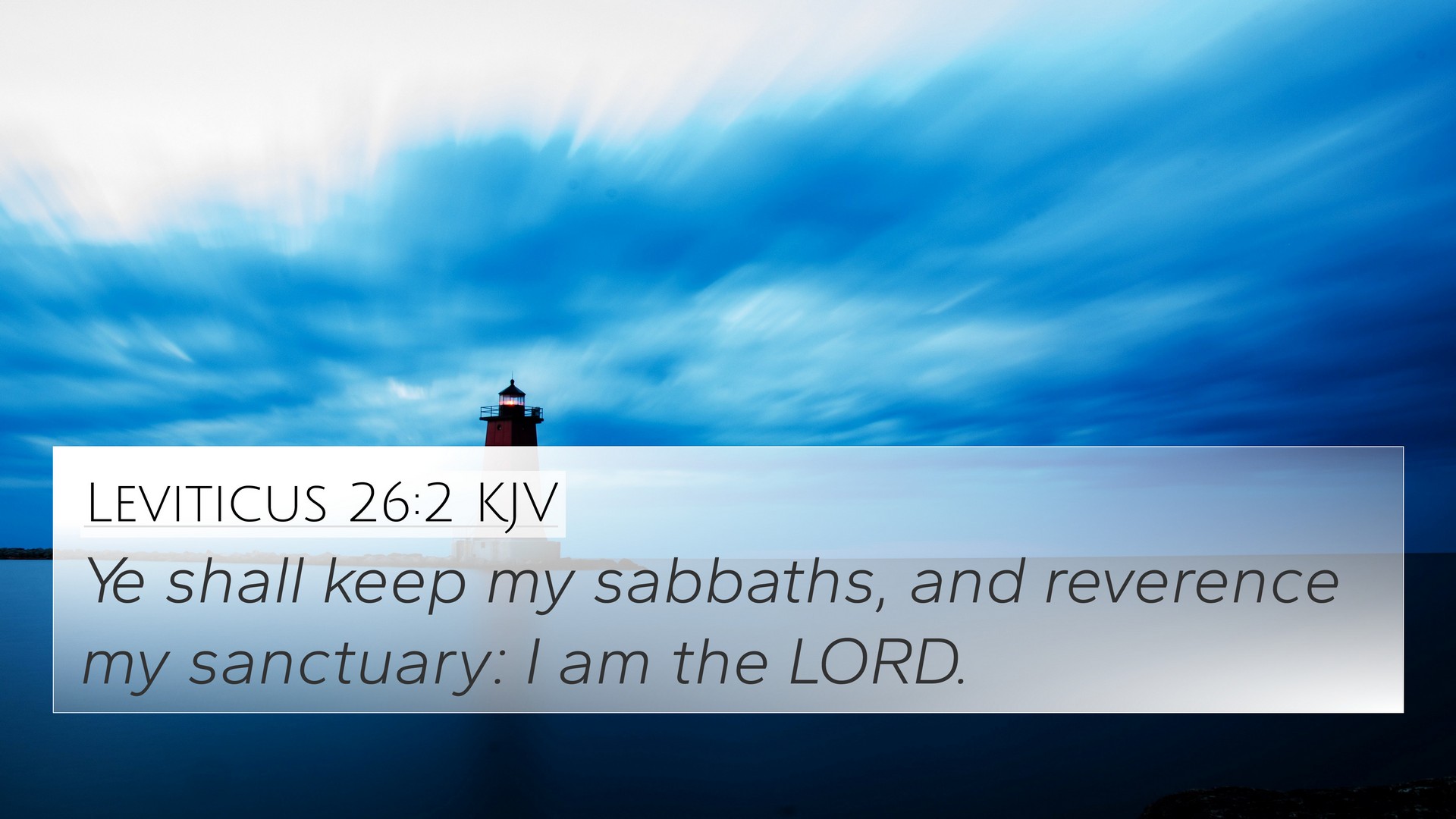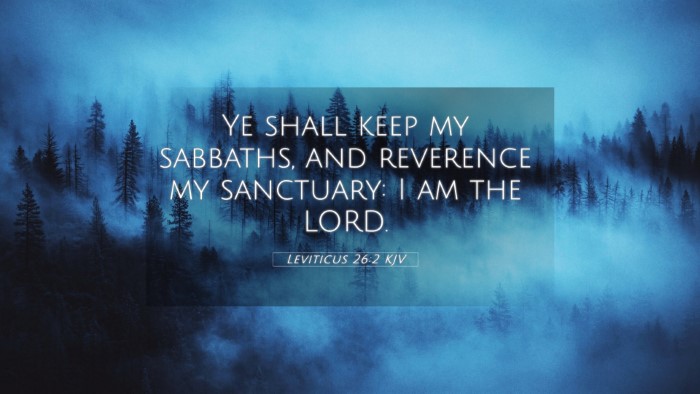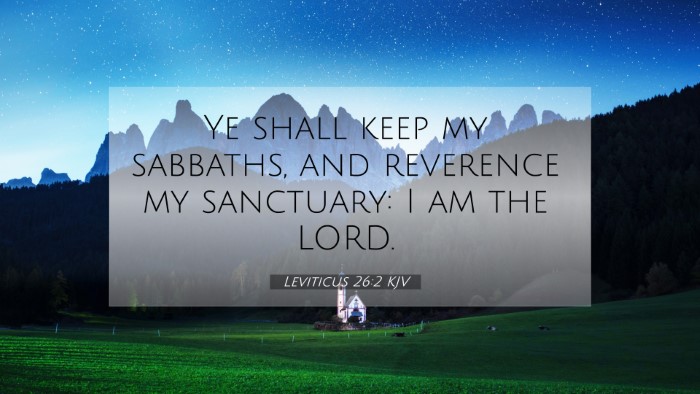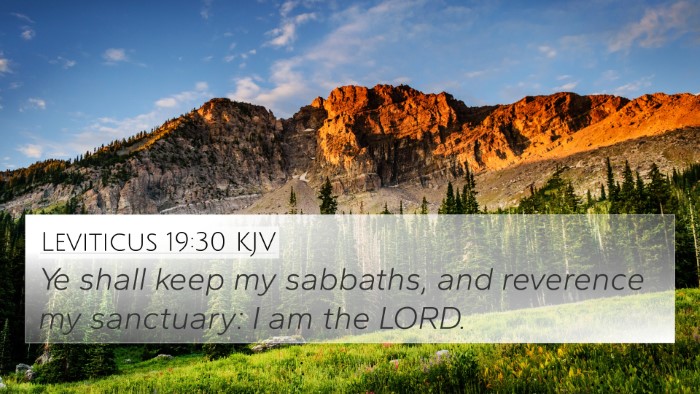Understanding Leviticus 26:2
Leviticus 26:2 states: "You shall keep my Sabbaths and reverence my sanctuary: I am the LORD." This verse encapsulates key themes of obedience to God's commandments and the sanctity of worship. Let us explore the meaning of this verse through the insights of several notable public domain commentaries.
Commentary Insights
Matthew Henry's Commentary
Matthew Henry emphasizes the importance of observing the Sabbath as a sign of allegiance to God. He notes that the Sabbath is not merely a day of rest but a day set aside for worship and contemplation of God's holiness. Dedicating this time indicates a relationship of reverence and honor towards God, reinforcing the idea that our activities should align with His holy character.
Albert Barnes' Notes
Albert Barnes points out that the instruction to "keep my Sabbaths" is foundational for the Israelites. It establishes a rhythm of life that centers on God's time, contrasting the secular world. Barnes explains that the emphasis on reverencing the sanctuary pertains to both the physical space of worship and the spiritual discipline required of the worshipers. Failing to do so risks diminishing the sacredness that God's presence demands.
Adam Clarke's Commentary
Adam Clarke highlights that the term "sanctuary" denotes not just the physical location but the entire concept of God's holiness. He explains that keeping the Sabbath is crucial not only for the people’s physical rest but for their spiritual health, as it provides a constant reminder of God’s creative order and redemptive plan.
Thematic Connections
The verse establishes a clear theme of covenant fidelity. The connection between obedience to God's law and the blessings it brings is critical. Below are notable Bible cross-references that expand on this verse’s themes:
- Exodus 20:8-11: Discusses the Sabbath commandment explicitly.
- Deuteronomy 5:12-15: A reiteration of the Sabbath command along with the reasons for its observance.
- Isaiah 58:13-14: Highlights the blessings associated with honoring the Sabbath.
- Matthew 12:8: Jesus identifies Himself as "Lord of the Sabbath," reaffirming its significance.
- Hebrews 4:9-10: Connects the Sabbath rest to the ultimate rest in Christ.
- Leviticus 23:3: Discusses the sacred nature of the Sabbath among holy convocations.
- 1 Chronicles 21:29: References the sanctuary’s significance during King David's time.
Further Reflections
These cross-references provide a comprehensive view of how the themes in Leviticus 26:2 resonate throughout Scripture. The observance of the Sabbath and the reverence for God's sanctuary emerge as vital components of the Israelites' identity and worship practices.
Tools for Bible Study
For those interested in conducting deeper studies, several tools can assist in cross-referencing biblical texts. Utilizing a Bible concordance can help identify thematic connections. A Bible cross-reference guide offers insights on connecting verses meaningfully. Cross-reference Bible study methods encourage discovering links between verses, enriching comprehension and application.
Conclusion
Leviticus 26:2 serves as a pivotal reminder of the relationship between God's commandments and the call to holiness in worship. By understanding and revering God's statutes, including observing the Sabbath, believers embody a faith that is grounded in respect and awe of the Divine. This verse not only shapes individual devotion but also underlines community identity as God's people.



